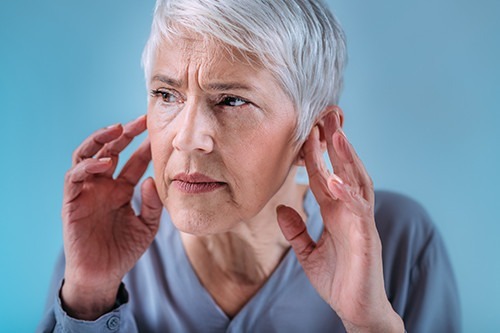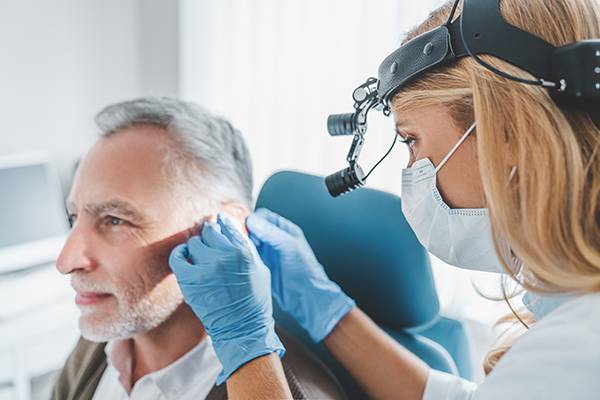Mixed Hearing Loss (MHL) intricately blends sensorineural and conductive hearing impairments, presenting unique challenges and opportunities for understanding and adaptation. This comprehensive guide navigates the complexities of mixed hearing loss, offering insights into its nature, impact, and management. From the initial diagnosis to the journey of living with this condition, we aim to provide a holistic view that encompasses the medical, personal, and social dimensions of mixed hearing loss. Our goal is to empower patients, caregivers, and healthcare professionals with knowledge and strategies to improve quality of life and communication in the face of this often misunderstood condition.
Decoding MHL
MHL is a dual condition that combines the characteristics of sensorineural and conductive hearing loss. This section explores the causes, symptoms, and diagnostic challenges associated with mixed hearing loss. The sensorineural component typically results from damage to the inner ear or auditory nerve, often due to aging, noise exposure, or genetic factors. The conductive aspect usually arises from issues in the outer or middle ear, such as ear infections, fluid buildup, or earwax blockage.
Symptoms of MHL can vary widely but often include difficulty hearing in noisy environments, a feeling of fullness in the ears, and a general decrease in sound clarity. Diagnosing this condition requires a comprehensive audiological evaluation, including hearing tests like audiometry and tympanometry, to assess the extent and type of hearing loss.
Treatment for MHL often involves a combination of approaches. Hearing aids are commonly used to amplify sound, while surgical options might be considered for addressing conductive issues. In more severe cases, cochlear implants may be recommended. It’s essential for patients to work closely with their audiologist to develop a tailored treatment plan.
Advancements in Treatment and Technology
The treatment of MHL has been revolutionized by advancements in technology and medical knowledge. Modern hearing aids are now equipped with sophisticated features like digital sound processing, directional microphones, and wireless connectivity, offering a more natural and adaptable hearing experience.
Cochlear implants represent a significant breakthrough for those with severe sensorineural hearing loss components. These devices bypass the damaged inner ear and directly stimulate the auditory nerve, providing a sense of sound to individuals who might not benefit from traditional hearing aids.
Surgical interventions for conductive hearing loss, such as stapedectomy or tympanoplasty, have also seen improvements, offering higher success rates and fewer complications. Additionally, bone-anchored hearing systems (BAHS) have emerged as an effective solution for certain types of conductive hearing loss.
Tele-audiology and remote hearing care services have become increasingly important, especially in providing access to care for individuals in remote or underserved areas. These services allow for remote adjustments to hearing devices and consultations, making ongoing care more accessible and convenient.
FAQ Section
What are the main challenges in diagnosing MHL? Diagnosing MHL can be challenging due to its dual nature, requiring thorough audiological evaluations to differentiate it from other types of hearing loss.
Can lifestyle changes impact MHL? While lifestyle changes cannot reverse hearing loss, they can help manage symptoms and prevent further damage, such as avoiding loud noise exposure and maintaining good ear hygiene.
Are there support groups for individuals with MHL? Yes, there are many support groups and resources available for individuals with mixed hearing loss, offering a platform for sharing experiences and advice.
Practical Guidance for Everyday Life
- Effective Communication: Use visual cues, reduce background noise, and encourage clear speech to improve communication.
- Lifestyle Adjustments: Protect your ears from loud noises, follow a healthy lifestyle to support overall ear health, and regularly consult with audiologists.
- Utilizing Technology: Explore the latest hearing aids and assistive listening devices that can enhance hearing in various environments.
Here are some external resources that can be referenced to provide credibility and depth to the content:
National Institute on Deafness and Other Communication Disorders (NIDCD)
- Resource Link: NIDCD – Mixed Hearing Loss
- Description: The NIDCD provides comprehensive information on various types of hearing loss, including mixed hearing loss. It’s a valuable resource for understanding the medical and scientific aspects of hearing conditions.
World Health Organization (WHO) – Hearing Loss Data
- Resource Link: WHO – Deafness and Hearing Loss
- Description: WHO offers global statistics and information on hearing loss, which can be useful for the section discussing global trends and prevalence.
American Speech-Language-Hearing Association (ASHA)
- Resource Link: ASHA – Types of Hearing Loss
- Description: ASHA provides detailed information on different types of hearing loss, including mixed hearing loss. The site is a great resource for understanding the condition from a speech and hearing professional’s perspective.
Hearing Loss Association of America (HLAA)
- Resource Link: HLAA – Living with Hearing Loss
- Description: HLAA offers resources and support for individuals living with hearing loss. This can be a great reference for the section on patient experiences and practical life strategies.
PubMed Central
- Resource Link: Recent Advances in Hearing Aid Technology
- Description: This scientific article discusses recent advances in hearing aid technology, which can be referenced in the section on treatment and technology advancements.
Journal of Occupational and Environmental Medicine
- Resource Link: Workplace Accommodations for People with Hearing Loss
- Description: This journal article provides insights into workplace adaptations for people with hearing loss, which is relevant for the section on workplace adaptation.
These resources offer a mix of scientific research, statistical data, and practical advice, making them ideal for supporting the content of your blog post on mixed hearing loss.





